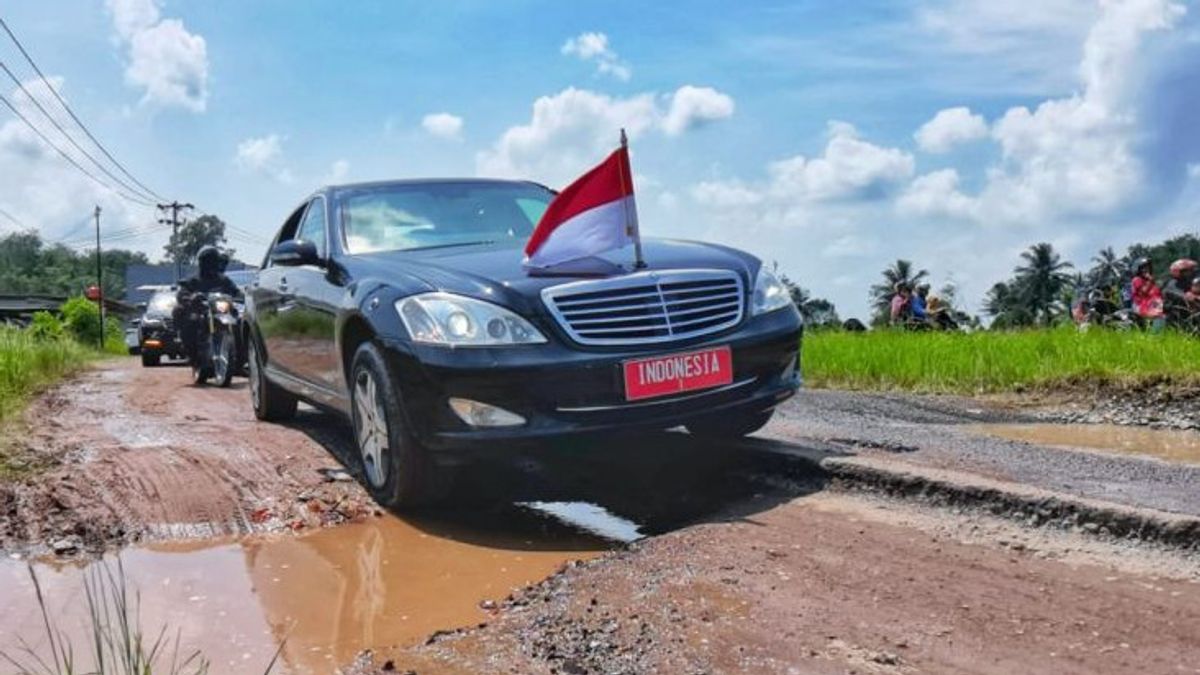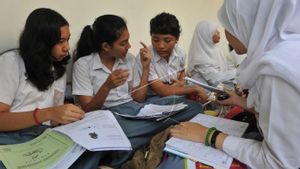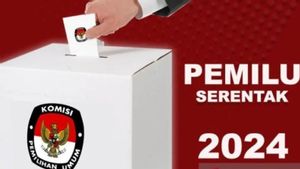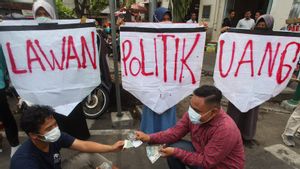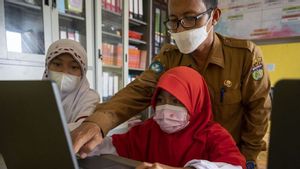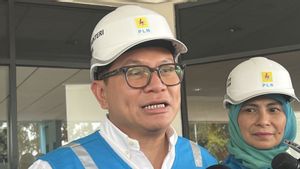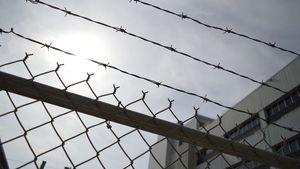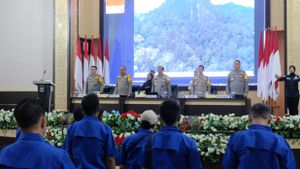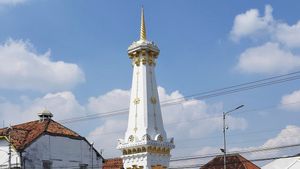JAKARTA The problem of damaged roads in Lampung Province has received a sharp spotlight. President Jokowi, who conducted a joint review with the Minister of Trade Zulkifli Hasan on May 5, even made a satire.
"It's good, enjoyed, until Pak Zul sleeps, I also sleep because it smoothly reaches the sleeping car," joked Jokowi.
In fact, when passing through Jalan Canal Ryacudu, precisely on Jalan Desa Purwotani, Jati Agung, South Lampung, the bumper of the Mercy Jokowi sedan had stuck to the asphalt due to the condition of the potholed and convex road.
Even so, Jokowi ensured that he would immediately address the problem. The government will disburse a budget of Rp800 billion to repair 15 damaged roads in Lampung Province, including asphalt roads which have now turned into mud puddles in Rumbia Regency, Central Lampung which had gone viral on social media.
The President has ordered immediate auctions and comprehensive data collection, both for district, city and provincial roads that are badly damaged. Lampung Governor Anal Djunaidi was also asked to immediately start the auction process.
"As soon as possible, which provinces do not have the ability, districts do not have the ability, they will be taken over by the Ministry of Public Works, especially those whose roads are badly damaged," said Jokowi after visiting the Traditional Market in Natar District, South Lampung, Lampung.
However, the President emphasized that all roads should not be charged to the central government, "Mr. Governor, Mr/Mrs. Regent here also take responsibility."
Access to transportation is an important factor in regional development. The better the road infrastructure sector, the more profitable it is for the regional economy.
"Indeed, the task of the central government, provincial governments, district/city governments provides services, including preparing good roads because it involves the mobility of goods and the mobility of people, and also regarding logistics costs, logistics costs. If the road is damaged, logistics costs will be high, products cannot compete," the President emphasized.
According to data from the Ministry of PUPR in 2021, the length of the national road in Lampung Province will reach 1,292.21 km. Only 1.73 percent or about 22.37 km were heavily damaged and 4.38 percent or about 56.58 km were lightly damaged.
Then, 60.61 percent or about 783.20 km in moderate condition and the remaining 32.28 percent are in good condition.
Meanwhile, of the total length of the provincial road which reached 1,693.27 km, only 9.81 percent or about 166.2 km were severely damaged. Then, 14.14 percent or about 239.44 km were slightly damaged and 11.60 percent or about 196.40 km were in moderate condition. The rest is 64.45 percent or about 1,011.24 km in good condition.
As for the district road, out of a total of 14,669 km, 17.77 percent or about 2,607.07 km were heavily damaged and 27.06 percent or about 3,969.96 km were lightly damaged. Only 33.80 percent or about 4,958 km were in good condition. About 21.36 percent or 3,133, the remaining 54 km are in moderate condition.
Minister of Finance (Menkeu) Sri Mulyani also mentioned the amount of funds that have been allocated for road construction in Lampung and Sumatra, both sourced from the Regional Revenue and Expenditure Budget (APBD), as well as the State Revenue and Expenditure Budget (APBN) as well as other state financial instruments.
From the APBD, the program for organizing the 2023 Provincial/Regency/City APBD Roads throughout Lampung reached IDR 2.16 trillion,
"Especially for Lampung Province itself, IDR 886.8 billion," Sri said on her Instagram account on May 6.
اقرأ أيضا:
Meanwhile, from the state budget, there are three sources of funds. Sri detailed as follows:
"Infrastructure development is a national priority agenda this year. Taxes paid by the people are used to create equitable development in all regions of the archipelago," said Sri Mulyani.
The realization of the Lampung Provincial Budget is ranked 3rd nationally. According to Djoko Setijowarno, it reached 95 percent far above the average area of only 87 percent. Unfortunately, of the Rp7.38 trillion in APBD, only Rp72 billion or equivalent to one percent was included in capital expenditures in the form of road maintenance and irrigation spending. Much less than the allocation of operational expenditures (employee expenditures) which reached Rp2.14 trillion.
The value of Rp72 billion could not be entirely for the construction or maintenance of road and irrigation networks because there is still a 10-15 percent fee return practice. Not to mention other things.
Reality in the field has many games. For example, supervisory consultants, instead of helping the government for supervision, supervisory consultants actually asked for additional fees from contractors to smooth out bills.
"So, road projects can be done with a percentage of 60 percent of the contract value is quite good. The average is less than that. The remaining 40 percent is divided into paying taxes, contractor profits, returning fees, and non-technical operational costs," said Djoko, the civil engineering teacher at Unika Soegijapranata Semarang.
On that basis, Djoko suggested that the government's revenue fee must be abolished, so that the road quality is in accordance with the technical specifications that have been set
"This can be imitated from Central Java Province, which has implemented no return fee for any work that uses the APBD," said Djoko.
In addition, the Ministry of Home Affairs should also be able to regulate the right composition. The composition of capital expenditures must be greater than operational costs. Cut excessive official facilities. For example, official travel costs and official vehicles that are more than one unit.
It is enough for one official car for each regional head. Officials below it are also provided with operational vehicles. It is also better if ASN is accustomed to using cheap public transportation to work. So that later, there will be concern from the regional head to fix public transportation.
"Unlike now, public transportation is allowed to die slowly and there is no effort for regional heads to fix it for the better," said Djoko, who is also the Deputy Chair of the Central Indonesian Transportation Community (MTI) Empowerment and Strengthening Division.
No less important is the supervision of trucks that are Over Dimensional Over Load (ODOL). ODOL truck activities make road conditions quickly damaged.
"The public can participate in monitoring. Report to the officers if you see an overdimensional cargo car and the load is still operating," added Djoko.
The English, Chinese, Japanese, Arabic, and French versions are automatically generated by the AI. So there may still be inaccuracies in translating, please always see Indonesian as our main language. (system supported by DigitalSiber.id)
